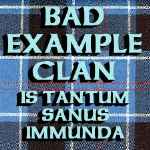Honoring an American Hero
The phrase "better late than never" is certainly appropriate after reading this story.
Meet Mr. Ted Rubin -- soon the be the recipient of the Congressional Medal of Honor:
It is an amazing story about a true American hero. How incredibly lucky we are to walk amongst men such as these. And on September 23rd he will receive the recognition so very long overdue. Wow, just wow. Thank you, Mr. Tibor. His story is here.
h/t Jason at CounterColumn
Meet Mr. Ted Rubin -- soon the be the recipient of the Congressional Medal of Honor:
When the White House called Corporal Tibor "Ted" Rubin to tell him he was to receive the Congressional Medal of Honor he thought it was one of his friends playing a joke. President Bush has called the 76-year-old Korean War veteran "one of the
greatest Jewish soldiers America has ever known." But Ted is characteristically modest. "I was just a country boy," he told me, "but next week I'll be honored with the country's highest award. This is unbelievable."
The article goes on to describe some of Mr. Rubin's incredible life experiences. Already a holocost survivor, Mr. Rubin emigrated to the United States and joined the Army -- keeping the promise hat he had made to himself when the Mauthausen concentration camp was liberated.
He promised himself that he would show his appreciation to the country that gave him his freedom, and saved his life.
Ted joined the Army in February 1950, and five months later landed in Korea with the 3rd battalion, 8th Cavalry Regiment, one of the first American units sent to help repel North Korean invasion forces. Ted was soon involved in the fighting withdrawal to the Pusan perimeter. In one engagement near Chirye, Ted's company was redeploying from one hill to another, and he volunteered to stay behind to keep the enemy guessing until the movement was completed. As Corporal Leonard Hamm relates, "the North Koreans, thinking the hill was still occupied by a whole company, made an all out offensive with all their available troops. PFC Tibor Rubin had stocked each foxhole with grenades, and during the attack the following morning made his way running from foxhole to foxhole, lobbing, one after the other, grenades down upon the enemy, he became almost hysterical in his actions but he held the hill."
For this and other actions, Ted's immediate superiors recommended him for the Medal of Honor. However, before the paperwork could be processed these officers were killed, and a sergeant who might have sent the papers up refused to do so because Ted was Jewish. "Not on my watch," he said. After the Inchon invasion, the 8th Cavalry Regiment moved north towards the Chinese border, and was at the forward edge of the U.N. offensive when the Chinese Red Army entered the conflict. Ted's battalion was destroyed at the Battle of Unsan in early November 1950, while fighting a delaying action against Chinese forces swarming south from the Yalu. Hundreds of Americans were captured, among them Ted, who had manned a machine gun to hold off the enemy as the rest of the unit attempted to withdraw.
Ted found himself in the Pukchin POW camp, also known as "Death Valley," and later at Pyoktong, along with hundreds of Americans, Turks, and others. The camps were at first run by the North Koreans, then by the Chinese, whom Ted said treated them slightly better. Nevertheless, life was nightmarish for the prisoners. They were cold and hungry, and disease was rampant. "Healthy men became like babies, helpless," Ted said. "Everything was stink, death, it was terrible, terrible." Thirty to forty a day were dying. "It was hardest on the Americans who were not used to this," Ted said. "But I had a heck of a basic training from the Germans."
It is an amazing story about a true American hero. How incredibly lucky we are to walk amongst men such as these. And on September 23rd he will receive the recognition so very long overdue. Wow, just wow. Thank you, Mr. Tibor. His story is here.
h/t Jason at CounterColumn



<< Home